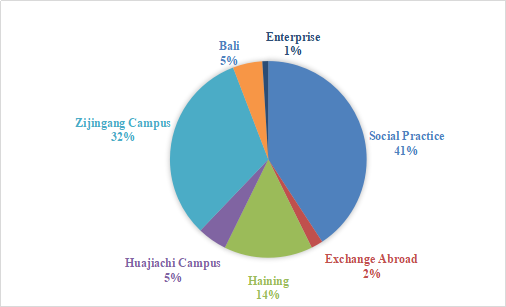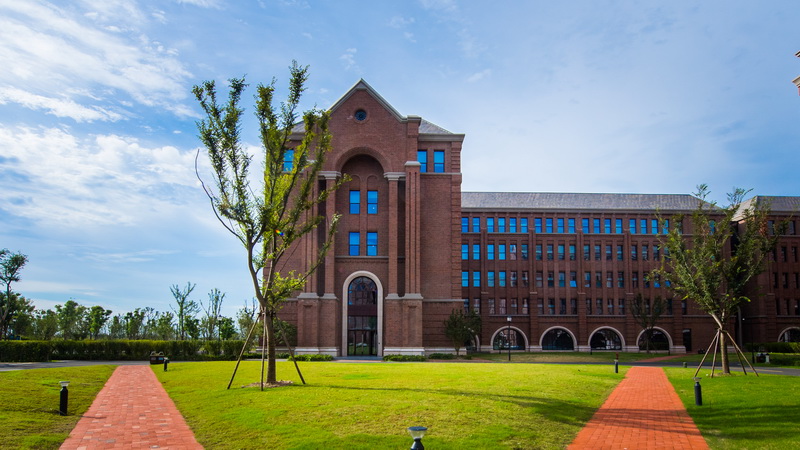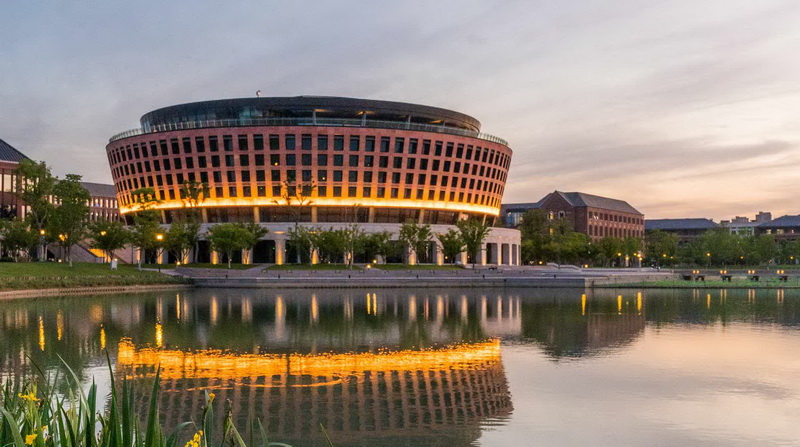In January 2019, Mr Xiang published a review in SCI journal as the first author. In September, Mr Luo published a review in Science as the fifth author, and Mr Zheng published a review as the co-first-author in SCI journal. All three students are from the 2017 cohort. Many other students also made great achievements in labs and received much praise. This is the outcome of the Biomedical Sciences program in ZJE, which was established only three years ago. So, what facilitates these students to make such great achievements?
“ZJE is committed to cultivating cross-border and cross-disciplinary awareness, determination, and capabilities in the students. Cross-border is to cross the border of subjects and regions. Cross-disciplinary means to make good use of other subjects to facilitate the research. And all these are reflected pragmatically in ZJE’s education,” said Ouyang Hongwei, Vice Dean of the ZJE Institute. Compared with a curriculum design which emphasizes knowledge points, the teaching in ZJE takes advantage of the cooperation partner, the University of Edinburgh. We attach more importance to cultivating students’ learning and reasoning ability. ZJE develops students’ learning capability through putting theoretical teaching, discussion-based, and experimental courses on an equal footing, and guiding students to explore new areas in class.
The creation of a competitive scientific research environment, together with joining excellent research teams within Zhejiang University, has provided a good fundamental support for students’ scientific research and training. The students also get this high level support in the summer research camps, which facilitates those great achievements. With training and support, students can come into contact with high level research after class or on holidays. Maybe it’s just a sample, a few simple mechanical tasks, or a stack of random numbers or unclear images, but, each time, the students become more skilled when they have a new experience and an unexpected result might ensue - which also creates excitement for them.
Another important aspect is students’ sense of mission of being a member of ZJE. Students in ZJE have spontaneously made a habit of always preparing early for summer vacation arrangements. The freshmen mainly focus on domestic social practice and have brought hopes and dreams to the villages in poverty in the mountains. The sophomores mainly have internships in the labs on campus to accumulate practical experience in scientific research. As to the juniors, they actively apply for scientific research placements in top overseas universities and show off their abilities on the international stage.
The summer vacation experience is an essential part of ZJE’s whole-person education. On each vacation, ZJEers go outside of the International Campus - to Harvard University, Stanford University, Yale University, Princeton University, the University of Melbourne, Europe, Australia, America, and other places. ZJEers go all over the world on summer vacation. They not only develop their own abilities, but also bring the energy of ZJEers to the society and show the accomplishments of ZJEers to the world.
Article: Xiaohan Huang and Zhiguo Ye
Translation:Shauiyin Liu
Appendix 1:Summary of ZJE’s Summer Vacation Practice in 2019
2016 cohort:
88.2% of the students in 2016 cohort participated in the research on summer vacation, and 82.4% are in overseas (including 2 students in Harvard University, 2 in Princeton University, 1 in UCLA, 1 in Columbia University, 1 in UCSD, 1 in Yale University, 4 in the University of Edinburgh, 1 in Stanford University, 1 in Switzerland and 2 in Australia). Besides, 1 student did the research in Haining and 1 interned in a pharmaceutical factory.
Chart 1 Composition of the Summer Vacation Practice of 2016 Cohort
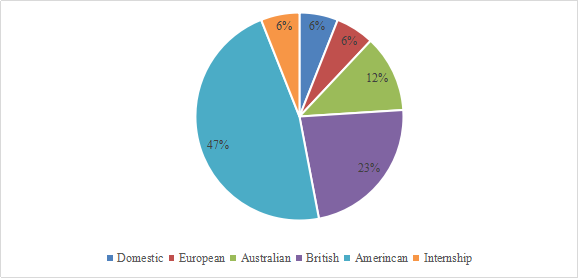
Chart 2 The Number of the Students of the Summer Vacation Practice of 2016 Cohort

2017 cohort:
87% of the students in 2017 cohort took participant in the summer vacation practice. Among them, the students who did research in Zijingang Campus occupied 19% and 19% participated the practice in Hong Kong or overseas, who were made up of 4 students (2 did experiments and 2 received academic training) in Harvard University, 1 in Stanford University, 1 in the University of Edinburgh and 2 in the University of Hong Kong, etc.
Chart 3 Composition of the Summer Vacation Practice of 2017 Cohort
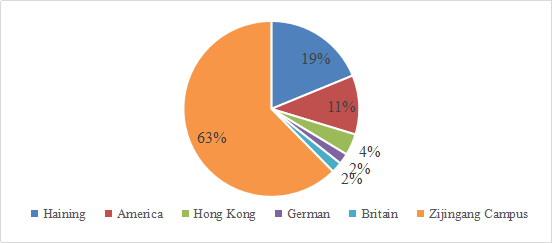
2018 cohort:
86.9% of the students in 2018 cohort participated in the summer vacation practice. 33 students did research in Zijingang Campus, 15 in Haining, 5 in Huajiachi. 42 students went to other cities (including Guizhou, Qinhuangdao, Dalian, Yunan, and other places), most of whom worked as voluntary teachers. Besides, 5 students were international volunteers in Bali, 2 students joined in the exchange programme in the University of Oxford and the universities in Hong Kong and Macau and 1 was in internship.
Chart 4 Composition of the Summer Vacation Practice of 2018 Cohort
